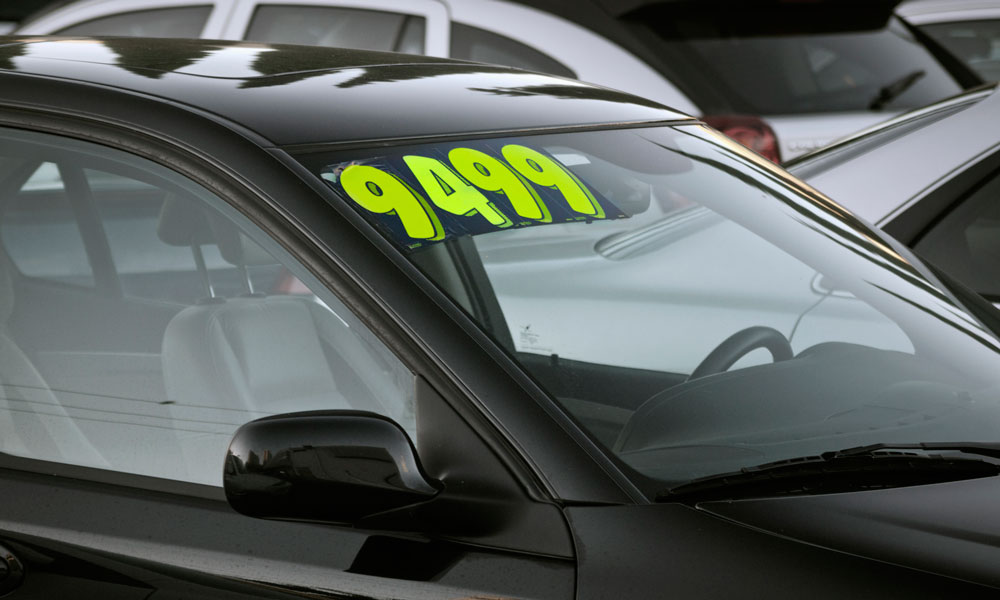
Data Defense: Auto Dealers Make Case Against Recall Bill
In an effort to counter legislation that would leave used cars on the lot until recalls are repaired, the National Automobile Dealers Association recently released a study it funded that claims such a law could significantly hurt trade-in values for consumers.
In an effort to counter legislation that would leave used cars on the lot until recalls are repaired, the National Automobile Dealers Association recently released a study it funded that claims such a law could significantly hurt trade-in values for consumers.
Keeping a used car facing a recall off the lot might sound like a natural idea to some car buyers. Auto dealers, however, are less convinced—and they have a new study to make their case.
In recent months, Sen. Richard Blumenthal (D-CT) has pushed this issue in the Senate, launching a bill called the Used Car Safety Recall Repair Act back in April. Blumenthal was unsuccessful in getting the measure added as an amendment to the Fixing America’s Surface Transportation (FAST) Act that was signed into law, but he has repeatedly argued for such a measure as a way to protect consumers.
The measure has been met with the cold shoulder from the auto industry in recent months, leading Blumenthal and Sen. Bill Nelson (D-FL) to ask the National Automobile Dealers Association (NADA) and the National Independent Automobile Dealers Association (NIADA) why they opposed the bill.
“We remain very concerned that used car purchasers will be the only category of vehicle consumers unprotected against potentially dangerous recalled vehicles,” Blumenthal and Nelson wrote to the two groups.
Making the Case
Last month, NADA offered its answer in the form of a new report it commissioned by J.D. Power and Associates. According to the report, “An Economic Assessment of Trade-In Value Reduction Caused by Preventing Auto Dealers From Selling Passenger Vehicles With any Open Recall,” requiring problems cited by recalls to be fixed before a vehicle is resold significantly hurts its resale value. In addition, the study argues that recalls that may only have a minor effect on the vehicle’s safety or performance are treated the same as vehicles with more serious issues.
“These recalls range from defects with only minor consequences and a highly improbable likelihood of occurring, to serious missteps in which deaths directly resulted,” the report states. “The wide variety in types and consequences of recalls also results in an assortment of reasons for, and lengths of, part delays.”
And part delays could mean that a vehicle could remain unsold for months under the policy change—and that, says J.D. Power, could significantly hurt its resale value by as much as $5,713. The average trade-in could lose roughly $1,210 in resale value due to delays such a rule change could cause, the report says.
“Assuming a repair delay that is shorter than the actual repair delay is a risky proposition for a dealer, and thus they are more likely to act as if they believe the range of repair delays will be on the high end of the range of repair delays observed in the past for recalls of similar scale and complexity,” said Jonathan Banks, the report’s lead author, in a news release.
Those interested in reading the full report can download it here [PDF].
(iStock/Thinkstock)






Comments